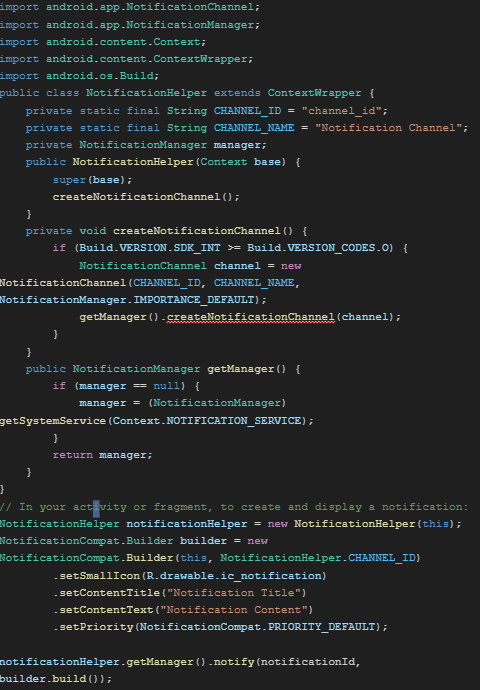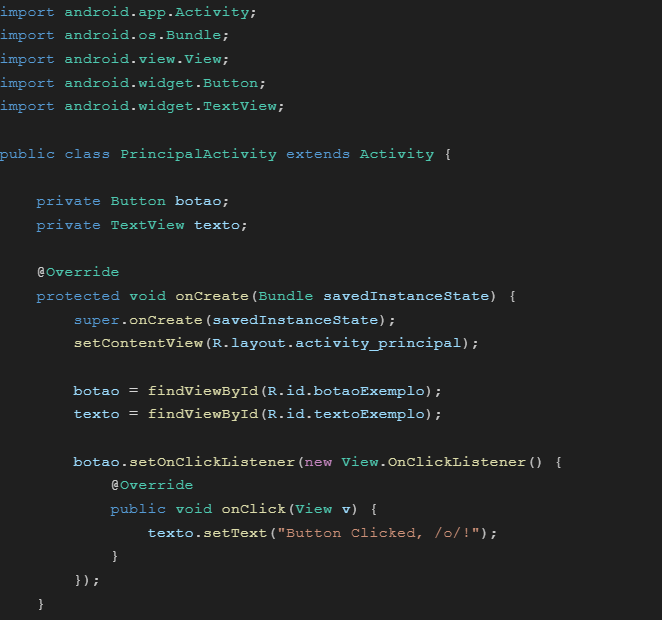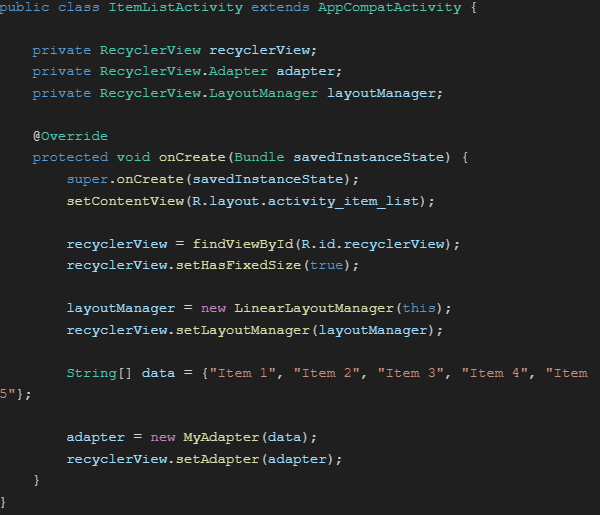Hire
Android
developers
pre-screened for technical and cultural fit
FREE to try! No cost to get started

40k+
ENGINEERS
14 days
to hire
100+
COVERED
30-50%
US hires
Hire the top 1% of
Android
developers
























Hire REAL devs in days
Build world-class remote development teams fast that scale with your needs

Time-to-Hire

Developers
.svg)
Alignment
Efficiency
.svg)
Over 250 companies trust us with their tech hiring needs



Android developers create mobile applications for Android devices on Google Play, their online app marketplace. Android is undoubtedly a market leader, with its apps accounting for almost 72% of the market share for mobile devices. Most of this web traffic comes from mobile devices, so Android developers for these systems are highly sought after.
Hiring Android developers is challenging, though, particularly if hiring managers aren’t familiar with software development. Understanding the tech stacks, assessing candidate skills, and trying to recruit in a competitive labor market are just a few of the obstacles in a typical software developer hiring process.
What Is Android Development?
Android development includes designing, developing, testing, launching, and maintaining apps created for Google’s mobile operating system. Android programmers use various programming languages, including Java, XML, Kotlin, and frameworks like Flutter and React Native. Some of the most popular Android apps include Instagram, TikTok, Subway Surfers, and Snapchat.
Why Android Development?
A business should consider Android development for its next project if reach is a key requirement. Android has a vast global customer base, making it easy for an app to reach a broad audience. Its integration with Google products like Google Drive and Google Analytics permits easy versatility.
Android has a large community, and native Android app development depends on widely supported languages like Java and Kotlin. Open-source libraries and tools are also widely available to assist developers, simplifying app production and lowering the total development cost.

Benefits of Android Development
Android and iOS apps differ in capability, compatibility, and cost. Depending on the project, available funding, and intended audience, organizations choose to develop on one or both platforms. There are several benefits of Android development to consider. Some of these advantages include the following:
- Access to the Google Play Store: Compared to the App Store, the Google Play Store offers a much faster approval process. Developers upload and release quickly because there are fewer requirements. Updates and bug fixes can also be released faster through the Google Play Store.
- More devices: Android applications work on over 24,000 devices, including almost 1,300 brands. Android apps can run directly on Microsoft Windows. This versatility allows for more sales and downloads than other operating systems.
- Security: Android uses Security-Enhanced Linux, which requires explicit permissions for any processes and operations. This tight security prevents malware and outsiders from accessing user information.
What Does an Android Developer Do?
Android developers design, create, and maintain applications for the Google Play Store and Android devices. These applications vary from games to social media apps to learning apps. Developers handle a range of responsibilities, including the following:
- Create high-quality, engaging user interfaces
- Manage user input
- Deal with data and information storage
- Connect with device software and hardware features
- Integrate with third-party services
Android developers are also responsible for aligning their apps with Google's best practices and guidelines for security, functionality, and accessibility. Once they’ve created an app, they must test it and launch it in the Google Play environment.

Required Skills and Qualifications
Android developers must possess a number of technical proficiencies and hard skills that may differ depending on project requirements. In addition to being fluent in the programming language needed for the project, knowledge of the following areas gives developers an edge in the industry:
- Android SDK: Developers must install and be familiar with the Android Software Development Kit (SDK) to access its features. Android SDK includes data storage tools like SQLite, debuggers, libraries, and more.
- UI/UX design: User interface (UI) and user experience (UX) design is an important skill that correlates with mobile app development. UI design shapes the interface that users will interact with. UX design is developing a product that provides users with a positive experience.
- Android Studio: Android Studio is the Integrated Development Environment (IDE) needed for app development on Android.
- API integration: Integrating Application Programming Interfaces (APIs) is a vital skill for an Android developer. This allows applications to communicate with each other and lets apps work with existing apps or web services.
While hard skills and technical acumen are vital, several soft skills are extremely useful. Some of the soft skills that a developer should exhibit include:
- Adaptability: With new programming languages and updates constantly being released, an Android developer who adapts is a valuable asset. Changing course to find solutions and address unexpected situations is a vital skill.
- Customer-minded empathy: Having empathy is an integral part of being an Android developer. Software engineers who relate to users, forecast their needs, and execute those ideas develop more accessible applications. Empathy also enhances teamwork within development teams.
- Time management: App developers juggle a lot simultaneously, and efficient time management improves productivity and speeds up timelines. Android developers who quickly prioritize, plan, and execute project management tasks are assets to any team.

Popular Android Development-Related Languages and Libraries
Android developers need to master various technical skills to complete their tasks. Depending on your project, they may need to grasp multiple programming languages. However, there are some common programming languages and libraries that Android developers use for app development.
Related Languages
To effectively build mobile applications for Android, developers need to master specific languages. Android developers should be very well-versed in the following languages:
- Java: Java is a platform-independent language with its own runtime environment. Many Android apps are written in Java, making it an essential language for any Android developer to know. Developers should understand Java’s functional programming, syntaxes, collection framework, concurrency, and multithreading.
- Kotlin: Kotlin fully integrates into Android Studio, which makes it vital for developers to learn. It’s more concise than Java, and developers accomplish more with less code.
- Python: Even though Android doesn’t support native Python development, developers still use it through different tools. Software engineers usually use Python for back-end tasks like testing, build control, and management.
- JavaScript: Developers use the front-end language Javascript and Node.js for Android apps through the Android JS framework. JavaScript allows developers to implement animations, pop-up menus, control multimedia, and more.

Related Libraries
Android developers have many libraries and frameworks at their disposal. These allow for more efficient workflows and faster development. Some libraries and frameworks that Android developers may utilize include:
- Retrofit: Retrofit is a library for Android and Java. Developers utilize this framework to assist in API interaction and authentication.
- Moshi: This JSON library works with Android, Java, and Kotlin. Moshi assists in parsing and converting JSON objects into Java and Kotlin.
- Glide: Glide is a framework specializing in media management and image loading. Android developers use Glide for resource pooling, memory and disc caching, and media decoding.
Popular Android Development Programming Tools
Android developers have the opportunity to access a vast community and resources to assist them. Android Studio and Android SDK are two popular programming tools developers use to create Android apps. Other popular Android development programming tools include:
- Vysor: Vysor is a tool that lets developers mirror their Android devices to a computer. In this tool, Android developers view and control their devices from the computer without using an emulator. Vysor works well for presentations and sharing work with other team members.
- FlowUp: This tool helps Android developers monitor the app's performance. Metrics like CPU, memory, and disk usage are displayed live on a dashboard. FlowUp allows developers to focus on essential tasks and work efficiently.
- Stetho: Stetho is a debugging tool for Android apps. Stetho uses Google Chrome Dev tools.
How Does Android Development Fit Into Modern App Development?
Android development unlocks a large user base that appeals to many businesses. Android has the largest market share of any operating system globally at over 70% as of August 2023. In India, one of the world's largest markets, Android has accounted for over 93% of the country's mobile operating systems since September 2022.
Android's versatility in terms of device options and cross-platform solutions also makes it a popular choice. Android development uses technologically advanced languages, frameworks, and tools that allow software engineers to create top-notch mobile applications.
With the emergence of artificial intelligence and machine learning, Android development will continue to expand and evolve into a more robust app development technology.
How Much Does It Cost to Hire an Android Developer?
The average yearly salary for a mid-level Android developer with four to six years of experience in the U.S. is $96,822. This estimate fluctuates due to factors such as experience level, geographical location, and other compensation benefits like yearly bonuses, stock options, or company equity.
While Android developers in Latin American countries are equally skilled, the lower cost of living means they’re usually paid 30% to 50% less than their US counterparts, with salaries varying based on location and experience. Revelo provides cost-effective access to many highly qualified, pre-vetted Latin American developers.
Featured Tool: Tech Team Budget Calculator
Finding Android Developers for Your Project
Before hiring developers for your product, you'll need to have a good grasp of the purpose and goals associated with the project. Make sure you're familiar with your project's requirements and understand exactly what skills and qualifications you're looking for in an Android developer. Decide which skills are essential, preferred, or not necessary to the scope of your projects.
In addition to tech-specific job boards like Dice, online platforms like LinkedIn and Indeed provide multiple ways to find suitable candidates. Search online networks and social media, post job listings, and scan online forums. After finding several candidates, compare and contrast their resumes, interview top talent, and negotiate a contract with the best Android developers.
Access Revelo's talent pool of
Android
developers
with technical expertise across Libraries, APIs, Platforms, Frameworks, and Databases
Libraries
Dagger | RxJava | EventBus | AndroidAnnotations | RetroLambda | Retrofit | Glide | ButterKnife | Parceler | IcePick | Espresso
Frameworks
Kotlin | Corona SDK | Sencha Touch | SproutCore | React Native | Xamarin | Ionic | Flutter | Cordova | NativeScript
APIs
Facebook API | Instagram API | YouTube API | Spotify API | Apple Music API | Google API | Jira REST API | GitHub API | SoundCloud API
Platforms
Amazon Web Services (AWS) | Google Cloud Platform (GCP) | Linux | Docker | Heroku | Firebase | Digital Ocean | Oracle | Kubernetes | Dapr | Azure | AWS Lambda | Redux
Databases
MongoDB | PostgreSQL | MySQL | Redis | SQLite | MariaDB | Microsoft SQL Server









